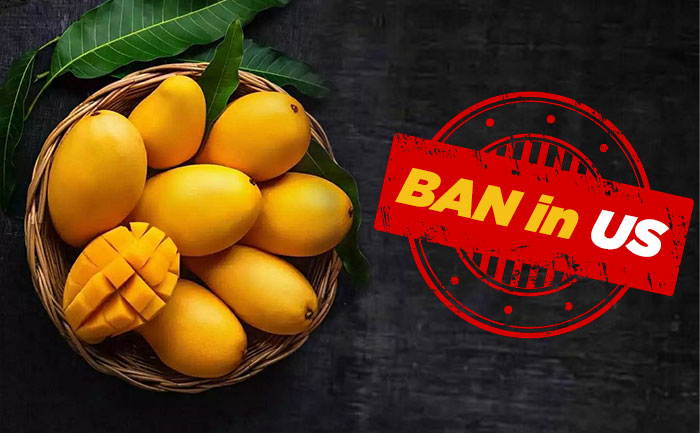
Know Why Indian mangoes are banned in the US
India is known to be the ultimate place to find the best quality mangoes in the world. The nation produces more than 1500 varieties of mangoes each year, out of which Hapus (Alphonso), Kesar, Langda, Badam, Chaunsa, Rajapuri and a few others are popular ones. Hapus have great demand at national as well as international markets and they are sold for expensive price tags in comparison to the other varieties. If you are looking forward to avoiding the efforts of visiting the market places for farm-fresh mangoes, then prefer purchasing the mangoes online through AamWalla.com. You will receive great quality mangoes for an affordable price tag at your doorsteps.
There’s this buzz on social media that Indian mangoes are banned in the US and a few other countries. However, the official ban is reportedly not on the mangoes which are exported only from India, however, the ban reflects on chemical ingredients that are used to boost the mango cultivations. Many commercial mango companies from India were recently rejected by the USA, Japan and a few others because of the horrible techniques allegedly used in ripening these fruits. Such practises not only affect the quality of mango but also affect the ecosystem of farming. After these types of chemically grown fruits enter the food chain, it becomes really difficult for the farming officials to keep a track on what affects the health of people, animals as well as trees.
Indian mangoes have apparently gained access to the US markets only after 2007, when the exports remained subdued till 2011. This export practice showed a great increase in quantity demand. However, the consignments to the US have to undergo a process called irradiation, which involves exposing the fruit to rays of a weak radioactive element. Maharashtra State Agricultural Marketing Board (MSAMB) has set up an irradiation facility at Vashi’s wholesale market in Navi Mumbai, which is a major hub for exporters. The set protocol involves the arrival of the US phytosanitary inspector who monitors the process, which is called pre-clearance operations. The mangoes which fail to meet these such expectation criteria’s get rejected for the exports.
For the unversed, organic mangoes have become a phenomenon over the past few years and it showcases a rise in demand. Organic mango cultivators use the ethical techniques of cultivation and avoid using chemical based ingredients to produce healthy organic mangoes. However, these varieties are expensive because of the need of care and investment of time it requires. There are a limited number of organic farmers in India and thus organic mangoes are produced at a limited quantity and they are sold for extremely high price tags.
